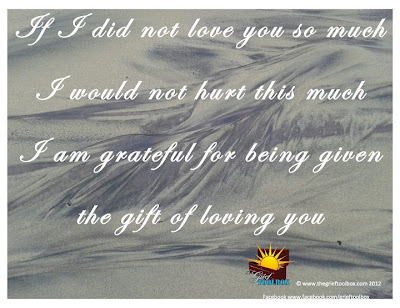Can we heal from the death of a loved one? When we are grieving sometimes our answer is NOT EVER! What does it mean to heal? If we look to physical wounds we can learn something about healing a broken heart. When we are severely cut or break a bone they heal, but they are never the same; residual pain and scarring can be there for a lifetime. The initial constant, searing pain of a broken heart will subside but the aching will remain. Healing is not the absence of pain; it is the recognition that sorrow and joy ca co-exist.
• John Adams, lost his son Charles, 20, while he was president.
• Thomas Jefferson had six children and only two lived to maturity. One daughter, Mary, 26, died while he was president.
• James Monroe lost a son two years of age.
• John Quincy Adams lost a daughter in infancy; a son died while Adams was president; and another son died five years later.
• William Harrison had ten children; six died before he became president.
• Zachary Taylor had six children; two died as infants and a daughter died three months after her wedding.
• Millard Fillmore's daughter Abigail died at 22.
• Franklin Pierce lost two sons in infancy. Two months before his inauguration to the presidency, their only child, Benjamin, 11 years old, was killed in a railroad accident
• Abraham Lincoln, lost two sons during his lifetime: Edward, four years old, while President Lincoln was in office; and William, 11 years old.
• Rutherford B. Hayes had eight children, three of whom died in infancy.
• James Garfield had seven children; two died while still infants.
• Chester Alan Arthur's eldest son died in infancy.
• Grover Cleveland's eldest daughter, Ruth, died at 13 years of age.
• William McKinley, lost both children: Ida, four months old, and Katherine, four years old.
• Theodore Roosevelt's son died at 21 years of age.
• Calvin Coolidge had a son, Calvin Jr., who died at 16 while his father was in office
• Franklin Roosevelt's son, Franklin Jr., died in infancy.
• Dwight Eisenhower's son, Doug Dwight "Icky," three years old, died at Camp Mead, Maryland. ©The Grief Toolbox
Tools for finding hope along the journey: Honor the hole of grief
When someone dies we are left with a hole. It can seem dark and empty and something that we try to fill. It may seem a strange or impossible thought, but we can learn to honor the hole that is left, knowing that it represents and reminds us of the love that we have given and received.
Tools for finding hope along the journey: Trust
There is a certain innocence that is taken away when someone we love dies. We not only come to understand the fragility of life, we also find out how difficult it is to find support and understanding even among our family and friends. Life is unpredictable and we are no longer able to trust that things will continue as planned, to do so is like putting a building on shifting sand. What is solid and able to be trusted is the knowledge that each and every one of us can survive and flourish no matter what comes our way.
Tools for finding hope along the journey: Perspective
Shortly after the death of my 4 year old son someone asked me,
“Given all the pain you are feeling do you think it would have been better not knowing him?”
I answered immediately,
“I would suffer a hundred times this pain for the privilege of having known him.”
How could anyone imply that it would have been better for me if I had never known my son? Thinking about it I realized that if he had never been a part of my life I would be spared the pain but also denied the joy. I wouldn’t be who I am today if I had not known him. I would choose knowing him, even knowing all the pain of his death.

Pictures, Quotes, and Content thanks to grieving mother, Tanya Lord's "The Grief Toolbox"


















































